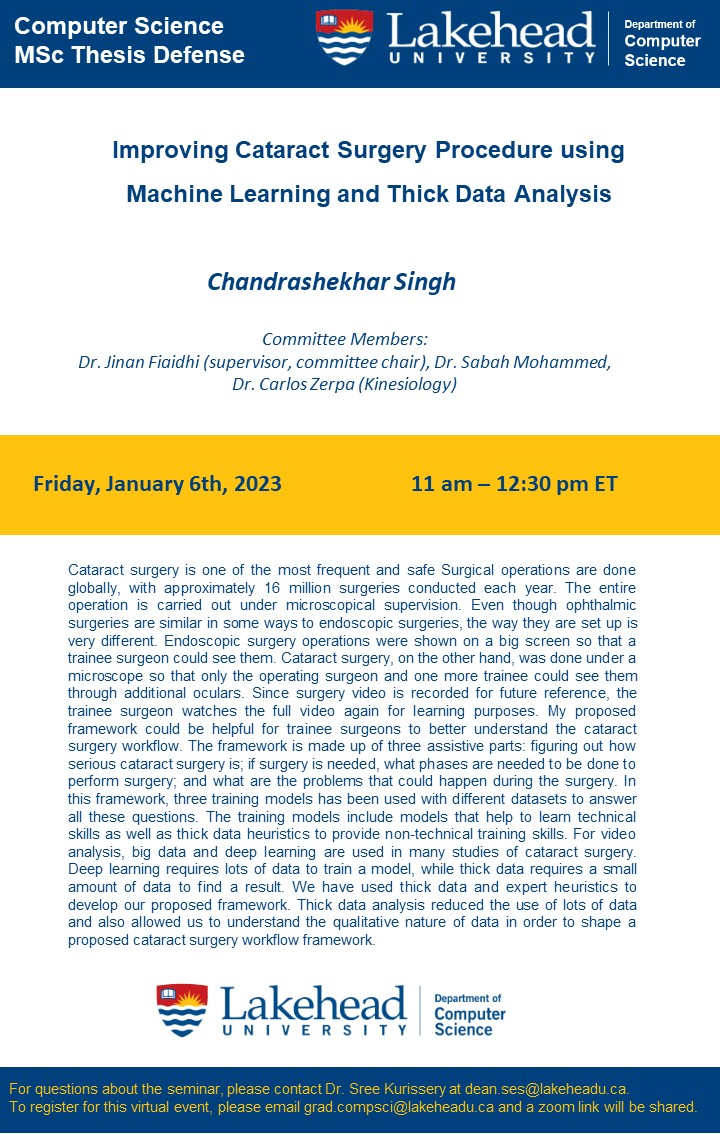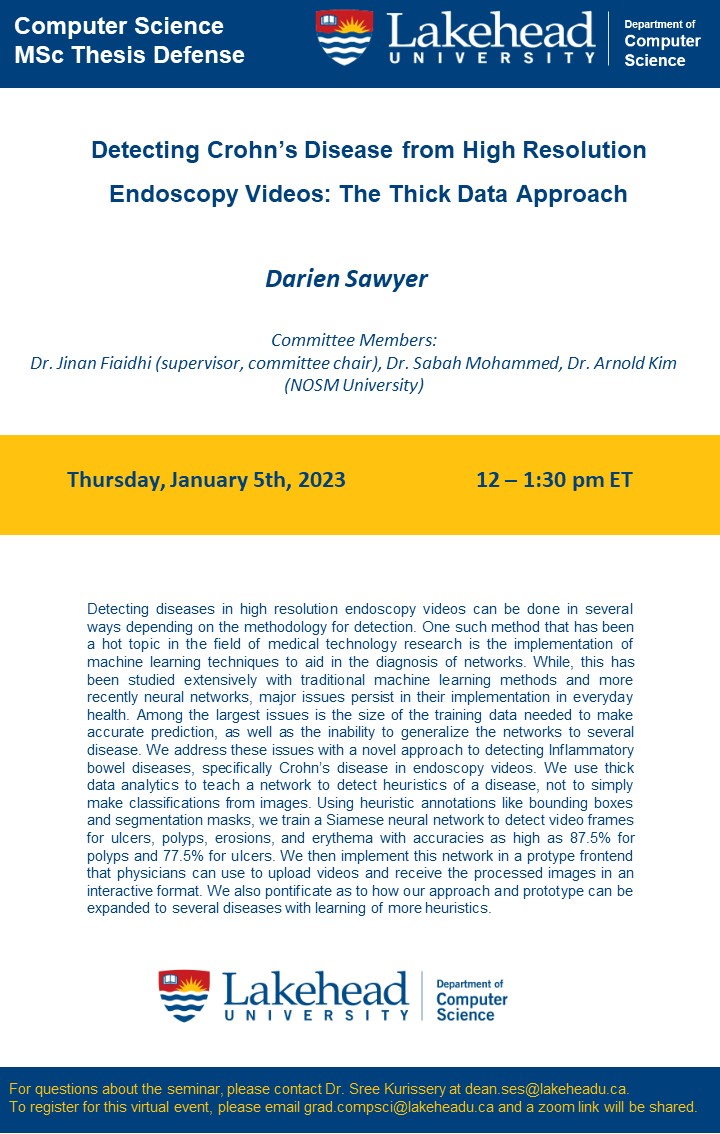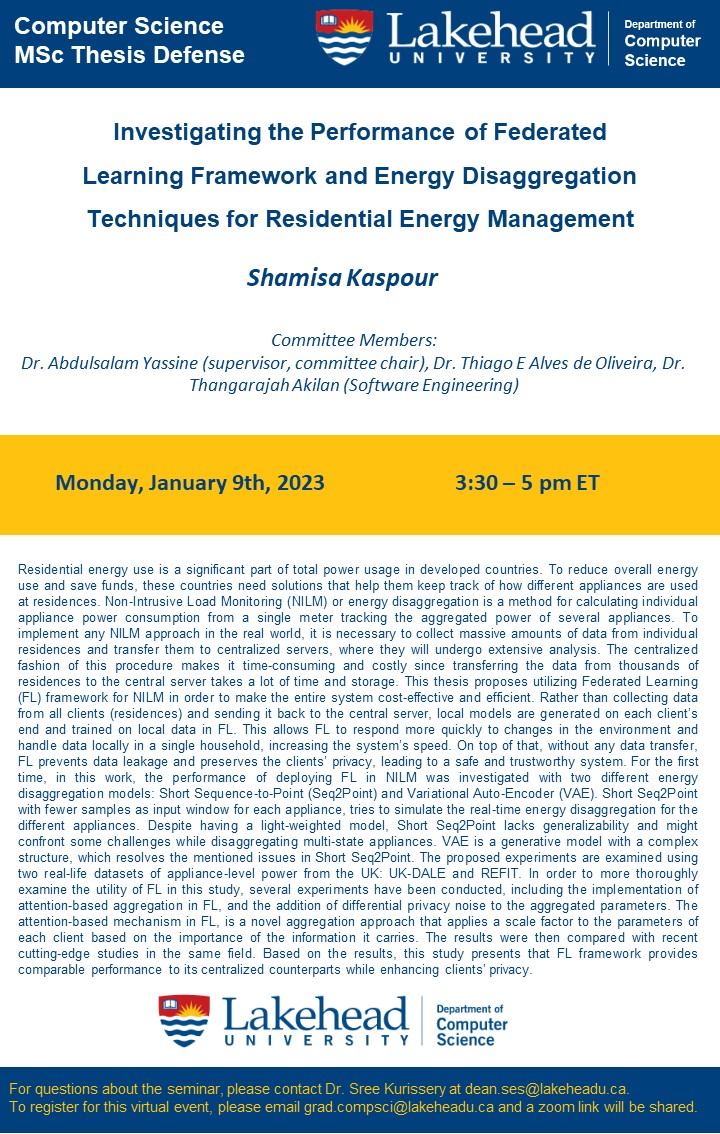Please join the Computer Science Department for the upcoming thesis defense:
Presenter: Shamisa Kaspour
Thesis title: Investigating the Performance of Federated Learning Framework and Energy Disaggregation Techniques for Residential Energy Management
Abstract: Residential energy use is a significant part of total power usage in developed countries. To reduce overall energy use and save funds, these countries need solutions that help them keep track of how different appliances are used at residences. Non-Intrusive Load Monitoring (NILM) or energy disaggregation is a method for calculating individual appliance power consumption from a single meter tracking the aggregated power of several appliances. To implement any NILM approach in the real world, it is necessary to collect massive amounts of data from individual residences and transfer them to centralized servers, where they will undergo extensive analysis. The centralized fashion of this procedure makes it time-consuming and costly since transferring the data from thousands of residences to the central server takes a lot of time and storage. This thesis proposes utilizing Federated Learning (FL) framework for NILM in order to make the entire system cost-effective and efficient. Rather than collecting data from all clients (residences) and sending it back to the central server, local models are generated on each client’s end and trained on local data in FL. This allows FL to respond more quickly to changes in the environment and handle data locally in a single household, increasing the system’s speed. On top of that, without any data transfer, FL prevents data leakage and preserves the clients’ privacy, leading to a safe and trustworthy system. For the first time, in this work, the performance of deploying FL in NILM was investigated with two different energy disaggregation models: Short Sequence-to-Point (Seq2Point) and Variational Auto-Encoder (VAE). Short Seq2Point with fewer samples as input window for each appliance, tries to simulate the real-time energy disaggregation for the different appliances. Despite having a light-weighted model, Short Seq2Point lacks generalizability and might confront some challenges while disaggregating multi-state appliances. VAE is a generative model with a complex structure, which resolves the mentioned issues in Short Seq2Point. The proposed experiments are examined using two real-life datasets of appliance-level power from the UK: UK-DALE and REFIT. In order to more thoroughly examine the utility of FL in this study, several experiments have been conducted, including the implementation of attention-based aggregation in FL, and the addition of differential privacy noise to the aggregated parameters. The attention-based mechanism in FL, is a novel aggregation approach that applies a scale factor to the parameters of each client based on the importance of the information it carries. The results were then compared with recent cutting-edge studies in the same field. Based on the results, this study presents that FL framework provides comparable performance to its centralized counterparts while enhancing clients’ privacy.
Committee Members:
Dr. Abdulsalam Yassine (supervisor, committee chair), Dr. Thiago E Alves de Oliveira, Dr. Thangarajah Akilan (Software Engineering)
Please contact grad.compsci@lakeheadu.ca for the Zoom link.
Everyone is welcome.




